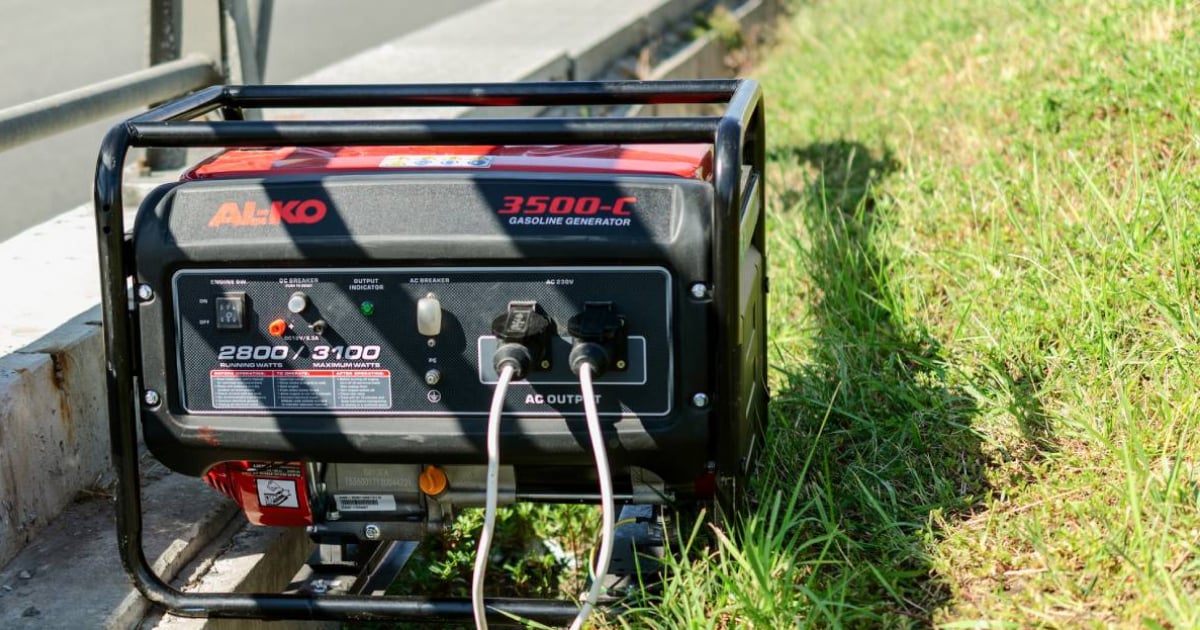The Electric Company of Havana has announced the launch of a Domestic Electric Generator Survey, to be conducted at commercial offices across the city's districts. Officially, the initiative aims to tally emergency power units in Havana's homes amid the severe energy crisis plaguing the island. However, many residents suspect the real motive is to tighten control over the populace rather than addressing the root of the problem.
Individuals owning generators are required to present their identification card and customer ID (found on their electricity bill). Additionally, they must provide specific details about their generator, including brand, power output, serial number, and fuel type. After registration, each individual will receive a receipt with the submitted information.
Once registered, residents must wait at least a week to check their status through Ticket, a subscription-based platform for fuel purchases. Upon notification, they will need to visit designated service centers to obtain 20 liters of gasoline, which must be paid for "through various alternative methods," as stated in the announcement.
The news, shared on Facebook, sparked widespread criticism. "Were these generators distributed through the ration book that they're now doing a survey on? It's a disrespect," commented an emigrant. "In which Cuban store did you give them out that you now want to control them?" echoed a young mother. "The Cuban people never needed generators; you've forced them to find alternatives, and now you want to control those too. What you need to do is solve the problems (...). You provide the service, I use what I need and pay for it," expressed a worker from the ICAIC. "They just want to know how many homes have generators to cut power for longer periods. They really hit a new low with this idea," remarked a Havana resident.
This survey is happening against the backdrop of an energy crisis worsened by power outages exceeding 1,500 MW of daily disruptions, as reported by the Electric Union this Tuesday. The prolonged situation has compelled the government to permit the population to purchase and use generators as an alternative.
Resolution 28 of 2025 by the Minister of Finance and Prices extended, until April 30th of this year, the authorization to import non-commercial generators with power over 900 watts. This measure, deemed "exceptional," aims to provide some relief to the public amidst the ongoing lack of electricity supply. Initially set by Resolution 218 of 2022, this allowance was meant to last until December 31st of that year. Due to the persistent energy crisis, the permission has been extended multiple times.
Risks and Safety Warnings
The need for generators has brought significant risks. Last August, a tragic incident in the Amancio municipality of Las Tunas resulted in the death of a man and his two-year-old daughter from carbon monoxide inhalation. This tragedy highlighted the necessity of operating generators exclusively outdoors and away from inhabited areas.
Despite these warnings, the use of generators continues to rise, driven by the desperation of Cubans facing prolonged blackouts. The regime stresses the importance of following safety recommendations to prevent tragedies but offers no real solutions.
Understanding Cuba's Energy Crisis and Generator Survey
Why is Havana conducting a survey on home power generators?
The official reason is to record emergency power equipment in homes due to the severe energy crisis. However, many believe the true intent is to increase control over the population.
What information is required to register a generator?
Owners must provide their ID card, customer ID, generator brand, power, serial number, and fuel type.
What safety risks are associated with using generators in Cuba?
There are significant risks, including carbon monoxide poisoning if generators are not used outdoors and away from living areas.
